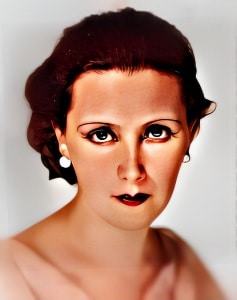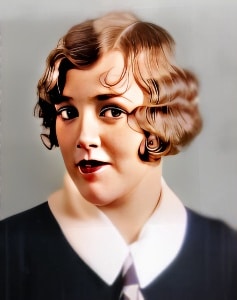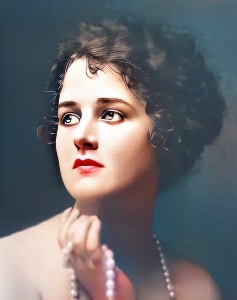 Lil Dagover, born on September 30, 1887, in Madiun, Java (then part of the Dutch East Indies, now Indonesia), was a renowned German actress who made significant contributions to the world of cinema during the silent film era and beyond.
Lil Dagover, born on September 30, 1887, in Madiun, Java (then part of the Dutch East Indies, now Indonesia), was a renowned German actress who made significant contributions to the world of cinema during the silent film era and beyond.
Her career spanned several decades, and she is celebrated for her captivating performances and versatility as an actress.
Dagover’s journey into the world of entertainment began during a time when the film industry was in its nascent stages. Silent films were the predominant form of entertainment, relying on visual storytelling and nonverbal acting. This period demanded actors to convey emotions and narratives primarily through facial expressions and physical movements. Dagover’s early experiences on stage and in theater prepared her well for this medium.
One of the defining moments in Lil Dagover’s career was her collaboration with director Robert Wiene in the iconic 1920 silent film “The Cabinet of Dr. Caligari.” This masterpiece of German expressionist cinema is celebrated for its visually striking set design and eerie, dreamlike atmosphere. In the film, Dagover portrayed Jane, the female lead, whose character is central to the unfolding narrative. Her performance was crucial in conveying the emotional and psychological turmoil experienced by her character and contributed significantly to the film’s impact.
“The Cabinet of Dr. Caligari” is known for its use of distorted, angular, and nightmarish architecture in its set design, creating a sense of disorientation and unease. Dagover’s ability to convey complex emotions primarily through facial expressions and physical acting added depth to the film’s atmosphere, making her a key figure in the horror genre’s history.
Lil Dagover’s talent extended beyond her work with Wiene. She was known for her versatility as an actress, appearing in a variety of silent films, including dramas, comedies, and character-driven roles. Her ability to engage with a diverse range of characters and narratives showcased her acting prowess.
The transition to sound films marked a significant shift in the film industry, challenging many silent film actors to adapt to this new era. However, Lil Dagover successfully made the transition, underscoring her adaptability and commitment to her craft.
One of the notable sound films in Dagover’s career was “Spies” (1928), a German silent and sound film directed by Fritz Lang. In this film, she portrayed the character Sonja Barranikowa, a key figure in the espionage-themed plot. Her performance added depth to the story and showcased her ability to excel in sound films.
Dagover’s ability to excel in a variety of roles and adapt to changing styles and genres made her a sought-after actress in the early years of cinema. Her performances continued to captivate audiences, and her enduring impact on the world of cinema remains a valuable part of the rich history of early Hollywood.
In conclusion, Lil Dagover was a remarkable actress who made significant contributions to the early years of cinema. Her career spanned the silent film era and the transition to sound films, during which she showcased her versatility and ability to convey complex emotions. While her name may not be as widely recognized today as some of the leading actors of her time, her performances and her enduring impact on the world of cinema remain a valuable part of the history of early Hollywood. Dagover’s talent and contributions to the art of acting continue to captivate audiences and inspire generations of actors and filmmakers.

 Lil Dagover, born on September 30, 1887, in Madiun, Java (then part of the Dutch East Indies, now Indonesia), was a renowned German actress who made significant contributions to the world of cinema during the silent film era and beyond.
Lil Dagover, born on September 30, 1887, in Madiun, Java (then part of the Dutch East Indies, now Indonesia), was a renowned German actress who made significant contributions to the world of cinema during the silent film era and beyond.


